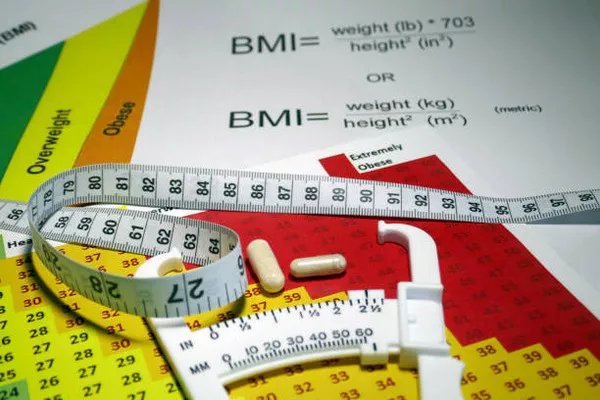Weight loss is a common goal for many people, and while surgery may seem like a quick fix, it often involves significant risks and lifestyle changes. Fortunately, there are natural and effective ways to lose weight through fitness and diet. This article will provide you with practical advice and a structured plan to help you achieve your weight loss goals.
Understanding Weight Loss Basics
To lose weight, you need to burn more calories than you consume. This simple equation can be achieved through a combination of diet and exercise. Let’s break down the components:
Caloric Deficit: Consuming fewer calories than your body needs.
Exercise: Burning calories through physical activity.
Healthy Eating: Choosing nutritious foods that support weight loss.
Setting Realistic Goals
Before embarking on your weight loss journey, it’s crucial to set realistic goals. Aim for a safe and sustainable weight loss of 1-2 pounds per week. This pace ensures that you’re losing fat rather than muscle and helps prevent the weight from returning.
Creating a Balanced Diet
A balanced diet is the foundation of any successful weight loss plan. It provides the necessary nutrients while maintaining a caloric deficit. Here’s how to structure your diet:
Prioritize Whole Foods
Whole foods are minimally processed and packed with nutrients. Focus on:
Fruits and Vegetables: Rich in vitamins, minerals, and fiber. They help keep you full with fewer calories.
Lean Proteins: Chicken, turkey, fish, beans, and tofu provide essential amino acids without excess fat.
Whole Grains: Brown rice, quinoa, and whole wheat bread are excellent sources of complex carbohydrates.
Healthy Fats: Avocado, nuts, seeds, and olive oil support overall health.
Avoid Processed Foods
Processed foods are often high in sugar, unhealthy fats, and empty calories. Limit:
Sugary snacks and beverages
Fast food and fried items
Refined grains like white bread and pasta
Monitor Portion Sizes
Even healthy foods can lead to weight gain if consumed in large quantities. Use portion control techniques, such as:
Measuring servings with cups and spoons
Using smaller plates
Eating slowly and mindfully
Stay Hydrated
Drinking water is essential for overall health and can aid in weight loss. It helps:
Keep you full between meals
Boost your metabolism
Improve digestion
Aim for at least 8 glasses of water per day. Avoid sugary drinks and excessive caffeine.
Designing an Effective Exercise Plan
Exercise plays a crucial role in weight loss by increasing your caloric expenditure. A well-rounded fitness routine includes:
Cardiovascular Exercise
Cardio exercises help burn calories and improve heart health. Examples include:
Walking: A low-impact option for beginners.
Running: An efficient way to burn calories quickly.
Cycling: A fun and versatile workout.
Swimming: Gentle on the joints and a full-body workout.
Aim for at least 150 minutes of moderate-intensity cardio per week. You can break this down into 30-minute sessions, five times a week.
Strength Training
Strength training builds muscle, which can boost your metabolism. Include exercises like:
Weightlifting: Target major muscle groups like legs, back, chest, and arms.
Bodyweight Exercises: Push-ups, squats, and lunges can be done anywhere.
Resistance Bands: Portable and versatile for various exercises.
Strength training should be done at least two days a week, with a focus on different muscle groups each session.
Flexibility and Mobility
Flexibility exercises improve your range of motion and prevent injuries. Incorporate:
Stretching: Dynamic stretches before workouts and static stretches afterward.
Yoga: Enhances flexibility, strength, and mental well-being.
Pilates: Focuses on core strength and stability.
Include flexibility exercises in your routine 2-3 times a week.
See Also: How To Get Prescription Weight Loss Pills Online
Incorporating Healthy Lifestyle Habits
Beyond diet and exercise, other lifestyle factors can influence weight loss. Consider the following:
Get Enough Sleep
Sleep is crucial for overall health and weight management. Lack of sleep can lead to weight gain by affecting hormones that regulate hunger and appetite. Aim for 7-9 hours of quality sleep per night.
Manage Stress
Chronic stress can lead to emotional eating and weight gain. Practice stress management techniques, such as:
Meditation: Helps calm the mind and reduce anxiety.
Deep Breathing: Lowers stress levels and improves focus.
Hobbies: Engage in activities that bring you joy and relaxation.
Stay Consistent
Consistency is key to achieving and maintaining weight loss. Create a routine that you can stick to long-term. It’s better to make gradual, sustainable changes than to follow a strict diet that you can’t maintain.
Tracking Progress and Making Adjustments
Regularly tracking your progress can help you stay motivated and make necessary adjustments. Use the following methods:
Keep a Food Journal
Record what you eat and drink each day. This can help you identify patterns and make healthier choices.
Monitor Your Weight
Weigh yourself once a week at the same time and under the same conditions. Keep in mind that weight can fluctuate due to factors like water retention.
Track Your Workouts
Log your exercise routines, including the type, duration, and intensity. This helps you monitor your progress and set new goals.
Seeking Professional Guidance
While this guide provides general advice, individual needs can vary. Consider seeking professional guidance from:
Nutritionists or Dietitians: For personalized dietary plans.
Personal Trainers: For customized exercise programs.
Medical Professionals: To address any health concerns or conditions.
Conclusion
Weight loss is a journey that requires dedication, consistency, and patience. By adopting a balanced diet, regular exercise routine, and healthy lifestyle habits, you can achieve sustainable weight loss without resorting to surgery. Remember, the goal is not just to lose weight but to improve overall health and well-being. Stay motivated, be patient with yourself, and celebrate your progress along the way.


